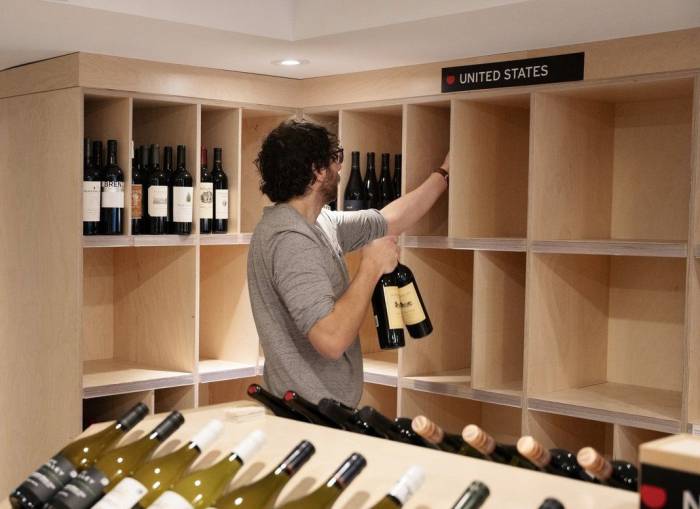U.S. Wine Exports to Canada Plunge 91% Amid Trade Dispute, Costing Producers $161 Million
2025-11-10
Provincial bans and tariffs spark historic sales drop as Canadian wineries gain ground and local loyalty surges

American wine exports to Canada have experienced a dramatic decline since March 2025, following a series of trade disputes between the two countries. According to a recent report from the Wine Institute, based in Sacramento, U.S. wine exports to Canada dropped by 91 percent between March and July compared to the same period last year. The group estimates that American producers have lost about $161 million in export value since the start of the ban.
Canada has long been a crucial market for American wine, accounting for 36 percent of U.S. wine exports in 2024. The sharp drop in sales began after the Canadian government imposed retaliatory tariffs on U.S. imports in response to tariffs placed by President Donald Trump on Canadian goods. In addition to federal action, several provinces, including Ontario and Quebec, removed U.S. alcohol from their government-run liquor stores.
Prime Minister Mark Carney announced in August that Canada would drop the retaliatory tariffs, but many provincial bans remain in place. The ongoing restrictions have compounded a broader boycott of U.S. goods in Canada, fueled by President Trump’s repeated references to Canada as America’s “51st state.” This rhetoric has also contributed to a decline in Canadian travel to the United States.
Data from the U.S. International Trade Commission shows that wine exports fell 73 percent year over year in March, dropping from $34.5 million to $9.2 million. The situation worsened through the second quarter, with an overall decline of 96 percent compared to last year. American spirits have faced similar challenges; second-quarter spirit exports to Canada fell by 85 percent year over year, according to the Distilled Spirits Council of the United States.
The Wine Institute described the situation as unprecedented, stating that there has been no comparable drop in wine sales in recent history. The organization warned that continued restrictions could harm not only American exporters but also Canadian businesses and government revenues.
Industry leaders have expressed concern about the long-term impact on both sides of the border. Chris Swonger, president and CEO of the Distilled Spirits Council, said in August that removing American spirits from Canadian shelves is hurting U.S. distillers and reducing revenue for Canadian provinces. He called for renewed cooperation between the two countries.
As American products disappear from store shelves, Canadian wineries are moving quickly to fill the gap. Narek Nersisyan, vice-president of sales and marketing at Holland Marsh Wineries near Toronto, reported a 10 to 15 percent increase in visitors over the summer as more Canadians sought out local wines and experiences. Customers are showing greater interest in local products as part of a broader Buy Local movement that gained momentum after the trade dispute began.
Karl Coutinho, president of Wine Growers Nova Scotia, said his province’s wineries have seen increased sales but still hold a smaller share of their local market compared to regions like British Columbia and Ontario. He noted that Nova Scotia wines account for about 10 percent of sales at provincial liquor stores and hopes this number will grow as local producers expand their capacity.
Jeff Guignard, president of Wine Growers British Columbia, pointed out that California’s largest wineries each produce more wine than all of British Columbia combined. With American wines off shelves, Canadian producers see an opportunity not only to increase domestic sales but also to push for fewer barriers to interprovincial trade.
Maria Pechurina, director of international trade at Peacock Tariff Consulting, said Canada could offset lost imports from the U.S. by increasing purchases from Europe or expanding into Asian markets such as China and South Korea. She noted that while Canada is America’s top customer for wine exports, France and Italy are larger suppliers to Canada than the U.S.
Canadian wineries are also looking at ways to retain new customers gained during this period. Some are working directly with local restaurants or expanding wine club memberships to build loyalty beyond the current trade standoff.
Industry leaders say they are not opposed to American wines returning but hope Canadian consumers will continue supporting local producers even when U.S. products reappear on shelves. For now, with no clear end date for provincial bans and ongoing uncertainty around trade policy, both American exporters and Canadian businesses are watching closely as this unprecedented shift continues to reshape North America’s wine market.
Founded in 2007, Vinetur® is a registered trademark of VGSC S.L. with a long history in the wine industry.
VGSC, S.L. with VAT number B70255591 is a spanish company legally registered in the Commercial Register of the city of Santiago de Compostela, with registration number: Bulletin 181, Reference 356049 in Volume 13, Page 107, Section 6, Sheet 45028, Entry 2.
Email: contact@vinetur.com
Headquarters and offices located in Vilagarcia de Arousa, Spain.